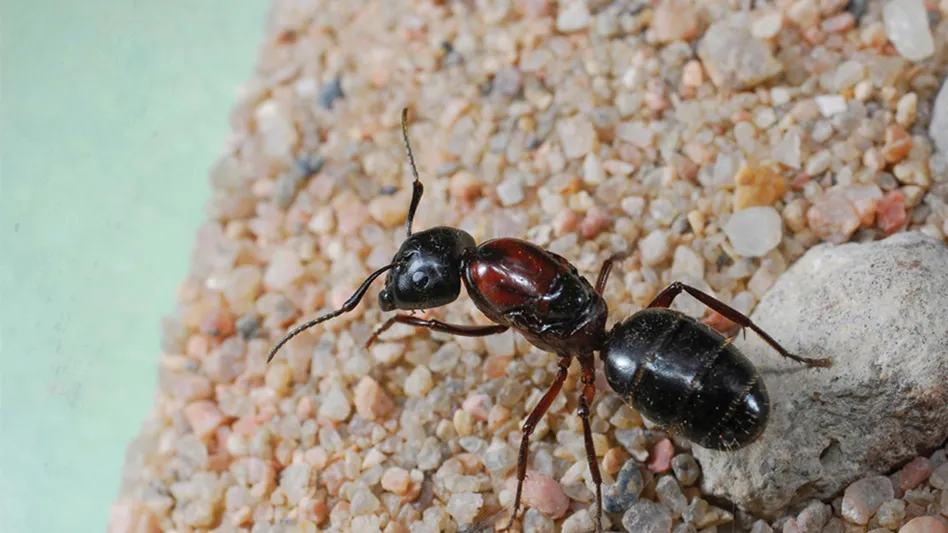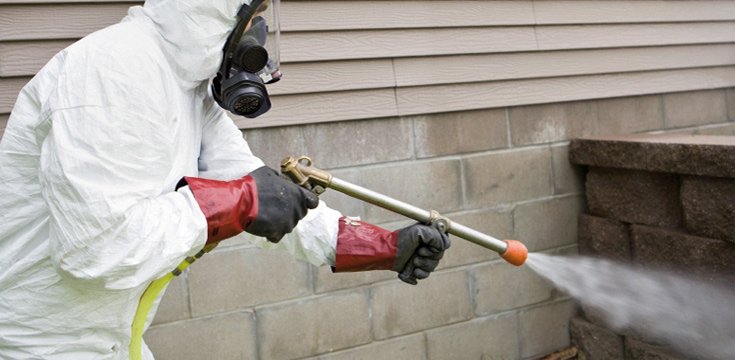Specialist Termite Control Services: Guard Your Home from Termite Damage
Specialist Termite Control Services: Guard Your Home from Termite Damage
Blog Article
Ecological Effect of Bug Control: Harmonizing Effectiveness With Sustainability
The environmental effect of bug control is a vital issue that needs a fragile equilibrium in between achieving efficiency in making sure and handling pests sustainability of our communities. As we make every effort to shield our crops, homes, and wellness from the threats presented by pests, the techniques we use can unintentionally harm the atmosphere. From making use of damaging chemicals that leak right into our soil and water to the unintended consequences on non-target species, the consequences of traditional insect control techniques are far-ranging. There are arising methods that use hope for an extra sustainable technique to pest administration. These options not just purpose to attend to the immediate parasite issues but additionally think about the long-term health and wellness of our earth.
Unsafe Chemicals in Insect Control
The application of damaging chemicals in parasite control postures significant ecological and wellness dangers that necessitate careful consideration and reduction strategies. Chemicals, herbicides, and insecticides are frequently made use of to eradicate insects, yet their prevalent application can bring about unintended repercussions. These chemicals can infect soil, water sources, and the air, impacting not just the targeted pests but likewise beneficial insects, wildlife, and humans.

To address these dangers, incorporated parasite management (IPM) methods are being advertised as a much more lasting alternative. IPM includes a mix of methods such as biological control, environment manipulation, and the targeted usage of pesticides as a last hope (ant control weddington nc). By adopting an all natural strategy to pest control, we can lessen the ecological and health impacts related to harmful chemicals while efficiently handling pest populaces
Impact on Non-Target Types
Taking into consideration the unintended consequences of bug control techniques, the effect on non-target types is a vital element that calls for extensive evaluation. While bug control procedures intend to target details pests, various other microorganisms in the community may be accidentally influenced. Non-target types, consisting of useful insects, birds, mammals, and also plants, can experience direct or indirect harm from chemical applications or organic control techniques.
Pesticides can have sub-lethal or lethal effects on non-target types. As an example, insecticides developed to combat a certain bug parasite might hurt pollinators like or all-natural predators such as ladybugs. In addition, chemical residues can build up in the environment, influencing non-target organisms in time. In a similar way, organic control agents, if not species-specific, can position dangers to unintentional targets, interfering with the environmental balance.
To alleviate the influence on non-target varieties, incorporated parasite management (IPM) techniques that emphasize have a peek at this website a holistic method to pest control are suggested. These approaches focus on making use of ecologically friendly practices, lessening harm to advantageous organisms while properly handling pest populaces. Performing thorough risk assessments and keeping track of the end results of pest control initiatives are necessary steps in guarding non-target types and promoting total community health and wellness.
Soil and Water Contamination
Unexpected ecological consequences of pest control approaches prolong past affecting non-target species, with significant effects for soil and water contamination - ant control services. Pesticides, herbicides, and chemical plant foods made use of in bug control can seep into the soil and infect groundwater, positioning a threat to both marine and earthbound communities.
Water contamination is another critical issue connected with pest control practices. Drainage from agricultural fields treated with chemicals can bring these chemicals into neighboring water bodies, affecting water organisms and water top quality. Contaminants in water resources can have significant consequences, impacting not just water life however also human health and wellness through the consumption of contaminated water or water microorganisms. To alleviate dirt and water contamination from bug control tasks, integrated insect management methods that focus on sustainability and lessen chemical inputs are important.
Air Pollution From Chemical Use
Direct exposure to air-borne pesticides during farming applications presents a substantial problem for air pollution control measures. In addition, chemical drift, where pesticides are lugged by the wind to unplanned areas, can lead to the contamination of neighboring communities and water bodies.

Techniques for Lasting Pest Control
In the world of agricultural practices, implementing lasting bug control techniques is extremely important for keeping ecological balance and securing crop returns. Lasting parasite control highlights making use of eco pleasant approaches to take care of bug populations properly while decreasing damage to non-target microorganisms and ecological communities. Integrated Insect Monitoring (IPM) is an extensively embraced approach that integrates organic, cultural, physical, and chemical control approaches to accomplish long-lasting pest administration remedies.
One secret technique in sustainable bug control is promoting biodiversity within agroecosystems. By improving all-natural opponents of parasites, such as killers and parasitoids, farmers can lower the need for artificial pesticides. Plant rotation and diversification are likewise reliable strategies to interrupt pest life process and produce much less positive problems for insects to grow. In addition, using pest-resistant plant ranges and employing techniques like catch cropping can help in reducing insect pressure without counting greatly on chemical interventions. Ultimately, by integrating these sustainable pest control approaches, farmers can attain a balance in between pest administration performance and environmental stewardship.
Conclusion
To conclude, the ecological impact of pest control approaches must be thoroughly thought about to balance performance with sustainability. Hazardous chemicals used in pest control can cause soil and water contamination, air pollution, and damage non-target types - termite control services. It is crucial to execute lasting insect control approaches to minimize these unfavorable results on the environment and advertise a much healthier ecological community for future generations
By embracing a holistic approach to pest control, we can lessen the environmental and health and wellness influences associated with harmful chemicals while efficiently managing pest populations.

To mitigate the air pollution created by chemical usage, it is vital to embrace incorporated pest administration strategies that prioritize the usage of non-chemical parasite control approaches, such as crop turning, all-natural predators, and immune plant selections. Lasting insect control stresses the usage of eco friendly methods to handle pest populaces properly while decreasing harm to non-target organisms and ecosystems. Integrated Parasite Administration (IPM) is an extensively taken on approach that integrates biological, cultural, physical, and chemical control techniques to attain lasting insect management services.
Report this page